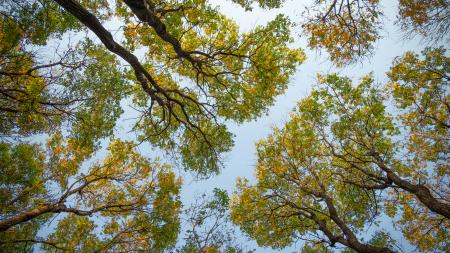It has been life giving

I have participated in Hearts Exchanged three times, once as a facilitator. Each journey has brought new ideas and insights to my own learning and healing. It has been especially meaningful to me as an Indigenous Christian within the Christian Reformed Church because it provides a space to engage with my own story and the history of my people in a way that is both honest and healing. It’s not easy to face the painful truths about the church’s role in the colonization of Indigenous peoples, including its involvement in Residential Schools and the continuing legacy of the Doctrine of Discovery. But the program allows me to do so in a way that is rooted in faith, reconciliation, and hope for the future of both the church and Indigenous communities.
Through this program I’ve shared my lived experiences as an Indigenous person within the Christian Reformed Church. It has been life giving. By sharing my story, others have felt safe to approach me with their stories. I am honoured with the gifts of their trust and privileged to be able to journey with them in their own healing journey.
The moment that the lightbulb goes on in a fellow learner is an incredible thing to witness.
Hearts Exchanged challenges both Indigenous and non-Indigenous members of the church to confront the real, lasting effects of colonialism—acknowledging how deeply it has wounded our communities and distorted relationships. It also reminds me that, as a Christian, my call to reconciliation is not just about personal healing, but about pursuing justice and restoration on behalf of my people and all marginalized people who suffer under systemic oppression.
As a facilitator, it’s been a powerful experience to see fellow Christians wrestle with these truths and begin to understand the weight of the church’s complicity. The moment that the lightbulb goes on in a fellow learner is an incredible thing to witness. It’s been particularly moving to see how participants engage with the theology of reconciliation, learning to integrate their faith with action toward justice. When they take the time to listen to Indigenous voices and reflect on how the church’s involvement in colonization has shaped their own faith and understanding of Scripture, it opens up pathways for deeper healing.
I’ve seen participants take the theology of reconciliation and turn it into concrete actions
I value the friendships made, across cohorts, as we seek ways of interacting well with each other. All three groups have met once each summer for a combined backyard BBQ and lawn games. New friends and old friends become good friends with one another. Hearts Exchanged goes well beyond the end of any one cohorts official 8 month timeline of learning.
What gives me hope in this process is seeing people truly engage in the work of repentance, reconciliation, and restoration—not just on a theoretical level, but in tangible, real-world steps. I’ve seen participants take the theology of reconciliation and turn it into concrete actions such as helping to promote the KAIROS Blanket Exercise, organizing and volunteering in events held on Canada’s National Day for Truth and Reconciliation, participating in fundraising for an Indigenous Family Center, participating in a local walk for Missing and Murdered Indigenous Women, advocating for change within the church, or simply learning to walk alongside Indigenous communities in solidarity.
Personally, I’ve also been able to give back and engage in reconciliation in new ways thanks to being involved in this work with the CRC. I’m the chair of the CRC’s Canadian Indigenous Ministry Committee, and I have been active in conversations with the World Communion of Reformed Churches. These are also life giving opportunities as we pursue right relationships together.
For me, this program has been a reminder that the church can be a place of healing and justice if we are willing to confront our past and commit to building a more just and loving future. Being a part of this process, and witnessing people faithfully engage with it, gives me a renewed sense of hope for the church’s potential to be a force of healing and reconciliation in a broken world. I long for a day where Indigenous people are seen as co-heirs of God’s Kingdom and are seen as a people group to learn from and NOT simply a mission field. There’s still so much work to be done, but seeing people step forward with humility and a willingness to change is an important and hopeful step toward genuine reconciliation.
Photo provided by the author (Marlene in red)




